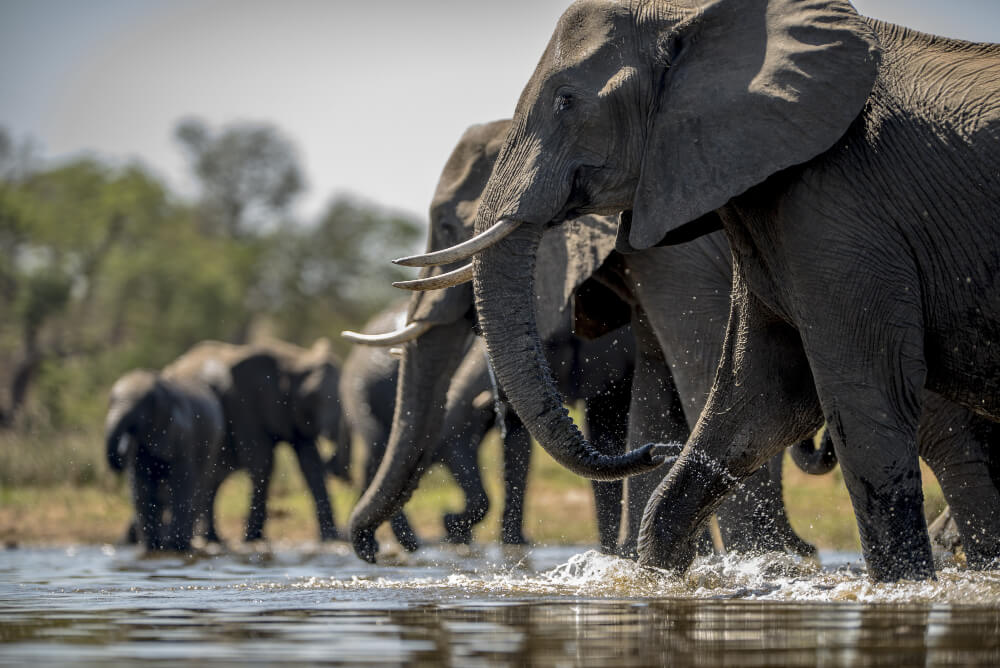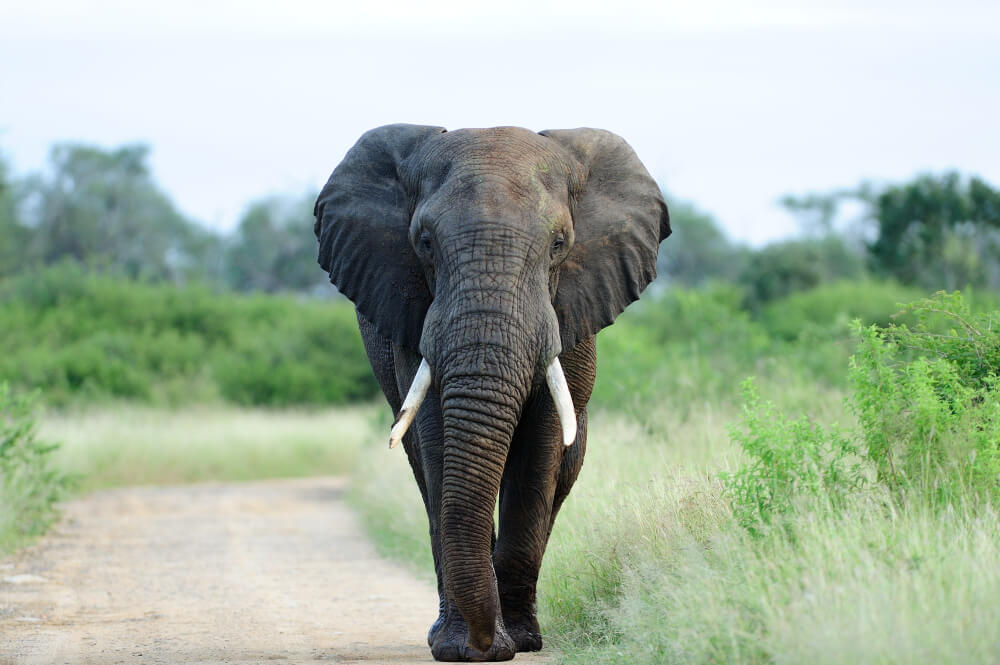Majestic Animal
Widely recognized as the most impressive animal in Africa, the African Elephant measures between 3.2 and 4 meters at the shoulder and weigh an average of 6.5 tons. The elephant’s trunk serves as a multipurpose tool for eating, cleaning, signaling, drinking water, digging, dusting and even as an extra limb when needed. Capable of reaching up to 7 meters in length, the elephant’s trunk is a strong muscle that has the ability to twist tightly around objects and is mostly used for tearing wood from trees or when fighting. The second most recognizable feature of the elephant is no doubt its tusks. Essentially the tusks are elongated incisors which grow for most of the elephant’s life and are thus an accurate gauge of an elephant’s age.
Elephants are herbivores and thus dedicate their energies to pushing over trees to eat. Elephants usually eat around 270-300kgs of food every day. The elephant’s digestive system isn’t very thorough. Thus a lot of the food that the elephant eats doesn’t get properly digested and its value or nutrients are lost. That is why the elephant needs to consume so much food in order to keep itself alive and healthy.
Elephants don’t generally wander in large herds. Small ‘families’ of the older elephant together with 3 or 4 young will stick together in groups. As opposed to previous concepts regarding elephant herds, the male elephant or ‘bull’ is quite a solitary animal and will only visit a herd to find a female elephant in estrus. Thus the typical elephant herd will consist primarily of females and their young.
These majestic animals are very intelligent and are reputed to have excellent memories. In many countries elephants are used as work animals because of their intelligence and their ability to communicate with each other and respond to human commands. Elephants are often the most sought after sighting when visiting South Africa’s game reserves.











